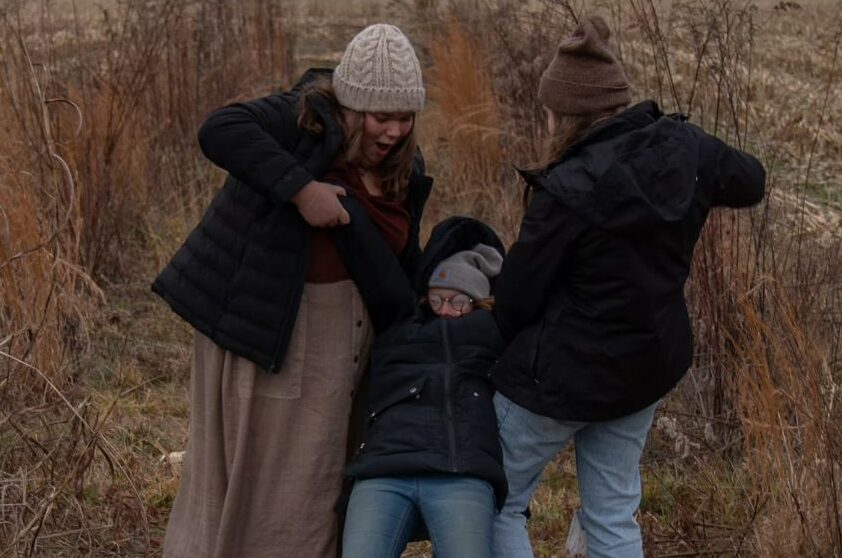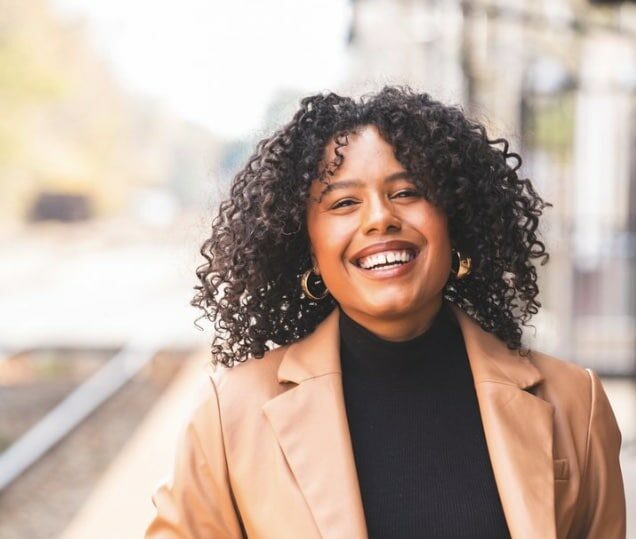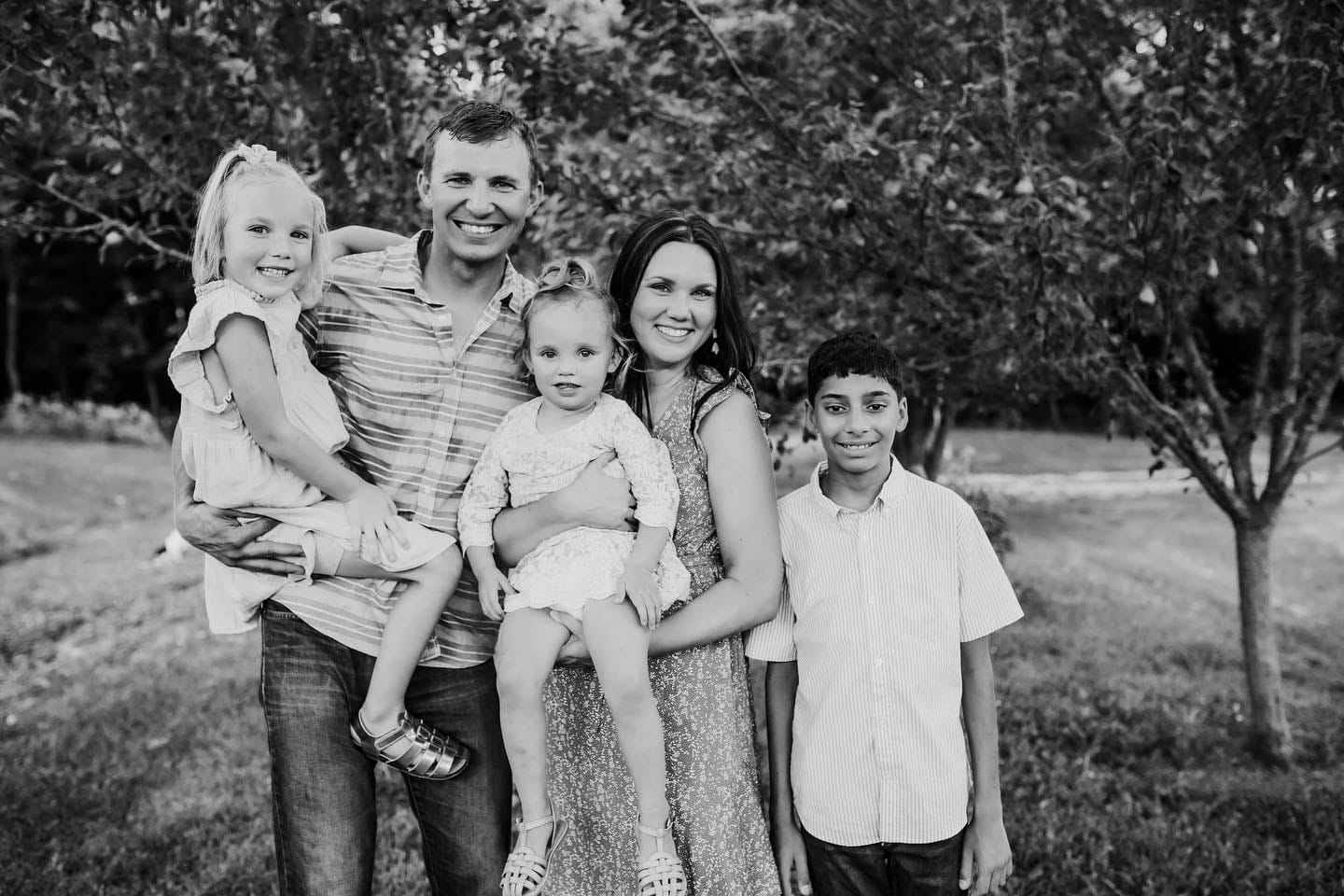One foster mama’s journey through loving and losing and understanding that foster care is not about her, but rather serving the vulnerable youth of our nation’s future!

Written by Ashley, Foster Mom
One of the most common questions I get asked as a foster mom is this: how can you give your whole heart to a child when you may lose them? Or, said another way, what if you get attached and then have to give the child back?
I deal with this more extensively on my blog, but for here and now, I’ll give you the short of it.
I won’t lie—attaching and then losing a child is really, really painful. I know, I just went through it. We had a baby boy in our home for a few months; for those months, I was mama-Ash. He was here. And then one day, he wasn’t anymore. I took him to daycare and someone else picked him up. I remember packing his clothes the night before, sitting on the floor with 13-month old clothes all around me, soaked in my tears. I had fallen in love with the kid.
After a little time of mourning, we opened ourselves back up to fostering, and now we have a new baby girl in our house. She’s been here over a month. We are learning her just like we had to learn Baby Boy.
And people wonder. They ask questions. They stare at me in disbelief. But how, how could you do that to your heart? What about all that attachment?
I could go into an extended discussion on this, but here’s the boiled down answer, in two parts:
1. The attachment everyone is so scared to offer is exactly what a child needs during traumatic seasons of life.
Children aren’t like adults when it comes to their mental and emotional development. In order for them develop normally and avoid certain disorders that come from dissociation and abandonment, they desperately need child-to-adult attachment. Without attaching to an adult, they simply won’t make it on the same level as a child who does have attachments in his/her life. If you hold back love from a child, you ruin their chances.
An adult can make it through traumatic seasons in a way a child can’t. We have fully developed brains. We have bodies that have sorted themselves out hormonally. And do you know how we got there? Solid, emotional attachments to adults.
Again, the one thing most people hold back out of fear is the primary thing foster kids need to thrive. That’s why I don’t hold back. That’s why I offer love with no conditions. It doesn’t matter if the child stays with me or goes.
And for goodness sake, if the child does leave me, don’t I want him to go with his best chance of success in the future? Don’t I want sturdy bonds built under him so he can develop normally and be given the same chance as the next kid? Wouldn’t you want your child to have unconditional love if he, God forbid, had to live in someone else’s home? Attachment gives him that chance, and so I give it whether I’m scared or not (though yes, I am most days!). In fact, I see the pain on the other side as evidence that I gave the child the bonds he needed to grow. That pain tells me I invested everything I was supposed to! In my blog I go into more on this issue, describing how my spiritual life helped me come to this conclusion; however, for time’s sake, I’ll head to the next point.
2. It’s not about you.
When I started my foster-care journey, I was quickly informed about all the statistics. This many kids end up staying in the system. This many kids end up adopted. This many kids end up transferring to an extended family member. This many kids end up reuniting with their parents. All my questions to this information sounded like this:
Can I love with those odds? Can I really do this? Can I really offer my whole heart knowing it might wobble out the door in the arms of a social worker one random Wednesday morning? Should I give my heart away knowing that a lot of these stats don’t land the child in my home long-term?
I was at a foster-care-small-group of sorts one night, and during the discussion, it hit me very clearly: all my questions start with the word “I.”
There are children, who are daily being pulled out of all sorts of situations they cannot handle mentally, emotionally, or physically, and my questions about it have nothing to do with them everything to do with me. How can that be?
Why don’t any of my questions have to do with the child?
For example, what will happen to them if I say no? Will they find another home? Or do they go to a group home? How many families have open space in their house in our county? How many parents are already at max capacity and need other parents to step in? How many kids are in a group home right now because there’s no one saying yes?
These questions represent a perspective shift—on what foster care means for the child instead of me. It’s a perspective shift I try very hard to help prospective foster parents see while they are considering the idea of becoming parents to kids in the system.
It’s just not about us. It’s about what’s best for this child and his/her family at the end of this road. That doesn’t mean the risks aren’t real and the pain doesn’t happen sometimes. It does. But all of that—the risk, the tears, the pain, the wonderful memories, the attachment offered—is in service to helping the child have his best shot in life.
At the end of the day, I didn’t think I could stand before God or the children who need attachment and safety, and say, “Sorry, I know you needed help in the hurt you were going through, but I was too scared to get hurt, too. So I left you in yours. ”
At the end of the day, for me, fear was understandable, but it wasn’t a good justification for leaving foster kids to fend for themselves. Fear just isn’t a good reason for inaction.
And more than that, the fears the kids are dealing with during this season of their life should matter more to me than my own fears. If we are in a battle for whose fears should hold more weight, it should obviously be the kids. So, fearfully, I entered in their mess, their fears, their family situation, their hurt, and I can’t remember life before it now. It’s still scary, of course. But I know I’m giving them what they need to make it.
Also, there’s another part to this—it’s not about you when it comes to the child, yes. But it’s also not about you when it comes to their family.
One thing foster care training helps you see is that you aren’t always the best end-of-the-story for the child. Sometimes the child should go back to his/her parent. Sometimes you shouldn’t break up a family if it has a shot of staying together. Sometimes the parents work really hard to fix what went wrong and they should be given the gift of loving their kids for the rest of their life, in their own home. Often it’s about their family becoming a whole and loving place, not yours. It takes a while to get your head out of your own family and see others, but when you do, the experience feels much different.
I hope these two pieces of perspective help prospective foster parents. It’s not an easy road, but it’s a worthy one, and I pray often that more will join myself and my family in it. There’s nothing like it.
Above photos by: Blest Studios, available for travel world wide!



